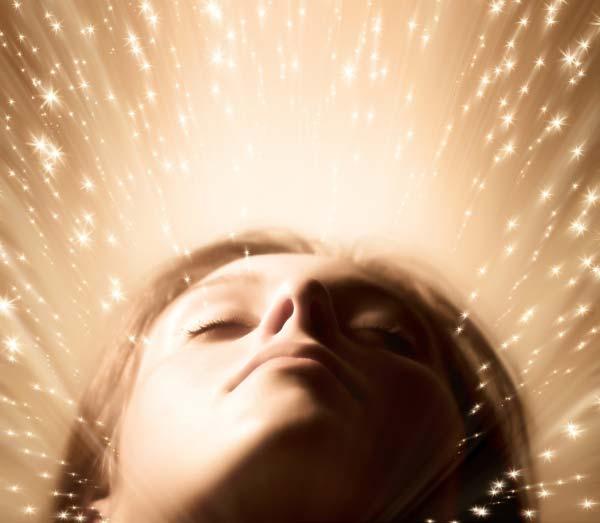51 Facts About Sex
Get the world’s most fascinating discoveries delivered straight to your inbox.
You are now subscribed
Your newsletter sign-up was successful
Want to add more newsletters?

Delivered Daily
Daily Newsletter
Sign up for the latest discoveries, groundbreaking research and fascinating breakthroughs that impact you and the wider world direct to your inbox.

Once a week
Life's Little Mysteries
Feed your curiosity with an exclusive mystery every week, solved with science and delivered direct to your inbox before it's seen anywhere else.

Once a week
How It Works
Sign up to our free science & technology newsletter for your weekly fix of fascinating articles, quick quizzes, amazing images, and more

Delivered daily
Space.com Newsletter
Breaking space news, the latest updates on rocket launches, skywatching events and more!

Once a month
Watch This Space
Sign up to our monthly entertainment newsletter to keep up with all our coverage of the latest sci-fi and space movies, tv shows, games and books.

Once a week
Night Sky This Week
Discover this week's must-see night sky events, moon phases, and stunning astrophotos. Sign up for our skywatching newsletter and explore the universe with us!
Join the club
Get full access to premium articles, exclusive features and a growing list of member rewards.
Lady parts

Vaginal size gets less play than the male equivalent. According to a 2006 study in the journal Human Reproduction, the average vagina is about 2.44 inches (6.2 cm) long, but vaginal length ranges wildly from 1.5 inches (4 cm) to nearly 4 inches (9.5 cm). As any woman who has given birth can attest, the vagina is very stretchy, and its length can change across a woman's menstrual cycle as her cervix changes position.
Was that good for you?

Ladies and gentlemen, we seem to have a failure to communicate. Results from the 2010 National Survey of Sexual Health and Behavior (NSSHB) revealed that 85 percent of men said their partner orgasmed the last time they had sex. Only 64 percent of women said the same. The gap between what women and men reported is too large to be explained by some men having had male partners.
Older women and the 'O'

But there's good news for women, too. The same NSSHB report found that for women and men ages 18 to 59, getting older was associated with a decreased likelihood of orgasming for men. For women, it was the opposite: Older women were more likely to say they'd orgasmed during their last sexual encounter than younger women.
Lethal lust

Can oral sex kill? It's incredibly rare, but there are a few reported cases of mostly pregnant women ending up with venous air embolisms after their partners blew air into their vaginas during sex. When they enter the circulatory system, air bubbles can block vessels, causing pain, tissue damage and, in extreme cases, death.
Researchers reported a case of venous air embolism after oral sex in the Journal of Emergency Medicine in 1993, but the danger is nevertheless slim. A 1998 paper published in the Postgraduate Medical Journal reviewed data on more than 20 million pregnancies, and found only 18 cases where a venous embolism caused death. In 2007, a similar review found only 22 cases of sex-related venous air embolism, 19 of which were in pregnant women.
Induced ovulation

In some mammals, semen may trigger ovulation. According to research published in August 2012 in the journal PNAS, a compound in semen can trigger an egg to be released from the ovary in animals that ovulate only when they've had sex. Not only did the finding explain how this "induced ovulation" works, it raised questions about human fertility. The same protein is present in human semen, but because humans ovulate on a regular schedule, it's not clear whether it has any function.
Waiting?

Not having sex seems to be gaining steam. A study conducted between 2006 and 2008 with 13,500 men and women found some 27 percent of male 15- to 24-year-olds had never had sexual contact, of any form, with another person; in 2002, 22 percent of this age group said the same. For females in that same age group, 29 percent had never had sex in the 2006-08 survey, compared with 22 percent who said the same in 2002. Not to worry, these are not your 40-year-old virgins. The study, carried out by the Centers for Disease Control and Prevention, found almost everyone ages 25 to 44 had taken the plunge and had sex.
Get the world’s most fascinating discoveries delivered straight to your inbox.
It can be restful

Just as people can sleep-walk, sleep-eat and sleep-drive, they can have sex during a snooze. The condition is called "sexsomnia," and it occurs when people engage in sexual behavior while asleep. A 2010 study found that of 832 patients at a sleep disorders clinic, 7.6 percent reported sleep-sex.
Sweet dreams

Speaking of sleep and sex, men have a leg up here. When their heads hit the pillow, women tend to have more nightmares, while men dream of sex more often. The study, which included nearly 200 male and female young adults, found women's nightmares could be broadly divided into three categories: fearful dreams (being chased or life threatened), losing a loved one, and confused dreams. When the ladies' dreams did head into the naughty direction, they reported more kissing and sexual fantasies about other dream characters; men, meanwhile, reported more actual intercourse.
It can make you sleepy

Guys' tendency to snooze after sex may be based in science. Most practically, couples often do the deed at night, in bed, and sex takes physical energy. Then there's biology: When guys orgasm, their brains release a mix of chemicals, including prolactin, which spikes during shut-eye in animals. In addition, injections of it have been shown to make animals sleepy. Brain-imaging research has also suggested to reach orgasm, guys and gals must let go of anxiety, something that would seem to put you in a relaxed — even sleepy — state. That means lights out for guys.
It can be addictive

Some of us even use sex like we would a cigarette or a stiff drink — sex is an addiction, scientists say. While they haven't agreed on a definition of what is formally called hypersexual disorder, scientists say it's not normal sexual behavior, even frequent sex or pornography watching. Rather, those with the disorder tend to feel out of control and act on sexual urges with no consideration of consequences. Sex addicts may also use sexual activity to deal with stress; and like other addictions, this one interferes with the person's ability to function day-to-day.
Jeanna Bryner is managing editor of Scientific American. Previously she was editor in chief of Live Science and, prior to that, an editor at Scholastic's Science World magazine. Bryner has an English degree from Salisbury University, a master's degree in biogeochemistry and environmental sciences from the University of Maryland and a graduate science journalism degree from New York University. She has worked as a biologist in Florida, where she monitored wetlands and did field surveys for endangered species, including the gorgeous Florida Scrub Jay. She also received an ocean sciences journalism fellowship from the Woods Hole Oceanographic Institution. She is a firm believer that science is for everyone and that just about everything can be viewed through the lens of science.
 Live Science Plus
Live Science Plus










